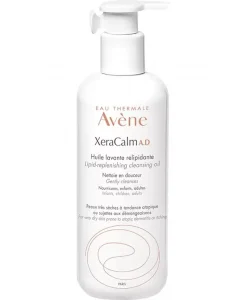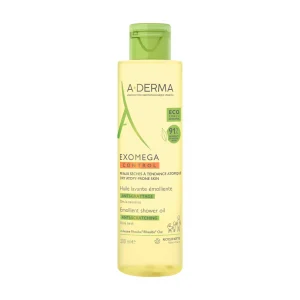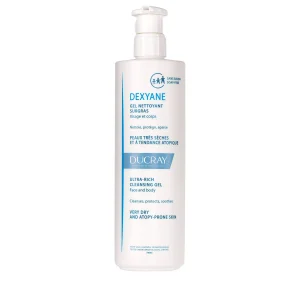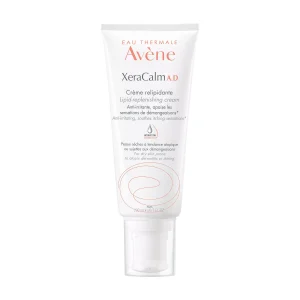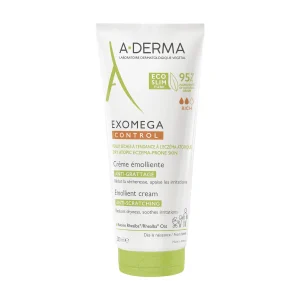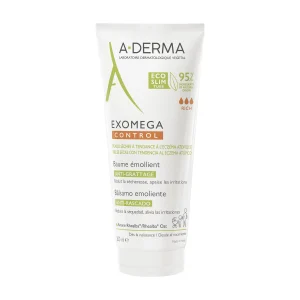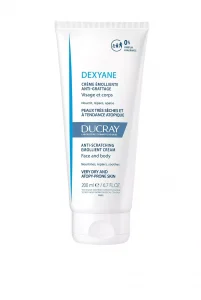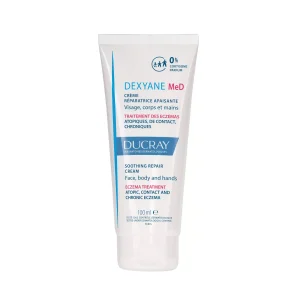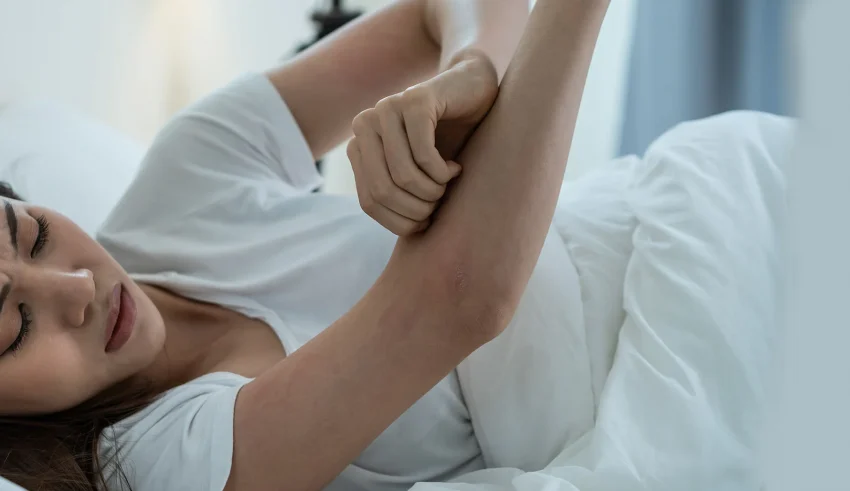
If you’ve just been diagnosed with eczema, you’re probably nervous, confused, or just uncomfortable. This is normal, and everyone with this condition has felt this way. But you know what they say: knowledge is power. In this article from The Dermo Lab, written in collaboration with dermatologist and cosmetologist Dr. Shaimaa Abdulmajeed, you’ll learn about eczema symptoms, causes, and treatments, as well as helpful lifestyle changes that will help you not only manage it but thrive. We’re sure you have many questions… and we’re here to answer them!
What exactly is eczema?
Eczema, also known as dermatitis, refers to a group of skin conditions that make your skin inflamed or irritated. It has no cure, but most people can manage their symptoms with treatment and by avoiding irritants.
There are different types of eczema – the most common is atopic dermatitis, which tends to be more common in people whose immune systems are too sensitive to allergens.
Other types of eczema include:
- Contact dermatitis: A red, itchy skin reaction to something you touch, such as nickel in jewelry or laundry detergent.
- Dyshidrotic eczema: This type forms small blisters and bumps on your hands and feet. It is more common if you wash your hands often or are in regular contact with chemicals.
- Discoid eczema: In this case, round, coin-sized spots appear on the skin, and they are even itchier than other types of eczema.
- Seborrheic dermatitis: This affects areas of the body with many glands, such as the scalp.
- Stasis dermatitis: This occurs when fluid leaks from the veins into the skin, causing painful swelling.
Although there is no cure for eczema, there are times when symptoms get worse (flare-ups) and times when they go away completely (remission). Therefore, Dr. Shaimaa Abdulmajeed indicates that it is possible to suddenly develop eczema (acute cases).
What are eczema symptoms?
When we talk about eczema symptoms, we usually think of atopic eczema, its most common form.
Dr. Shaimaa Abdulmajeed states that the main eczema symptoms are itching and discomfort.
Why is eczema itchy? When eczema flares, becoming red and sore, it causes itching. If the skin is very irritated, it may crack and bleed or ooze clear fluid.
The main symptoms are the same for almost everyone, but their frequency and severity vary from person to person. There are also a couple of key differences, depending on your age.
Eczema symptoms in babies:
- Eczema in babies appears mainly on the scalp and cheeks.
- Dry, itchy skin.
- Scaling.
- Lesions that may ooze.
- Irritability and trouble sleeping due to itching.
Eczema symptoms in children:
- Eczema most often appears on the inside of the elbows and behind the knees. It can also be found on the neck, wrists, or ankles, or the area between the buttocks and the folds at the top of the thighs.
- Rash that is warm to the touch.
- Raised patches that look scaly and may crust over.
Eczema symptoms in adults:
- Eczema is often present on the hands, eyelids, and under the eyes.
- The skin is very dry, easily irritated, and cracked.
How long will eczema last? Dr. Shaimaa Abdulmajeed notes that this skin condition can last from a few minutes to several years.
What causes eczema in the first place?
Eczema is likely caused by a combination of things that may include:
- Genetics. A major risk factor is having parents who have or have had eczema, asthma, or seasonal allergies. According to Dr. Shaimaa Abdulmajeed, the genetic component is the main cause of eczema.
- Problems in the functioning of your immune system.
- Environment. Children are more likely to get eczema if they live in urban areas with higher levels of pollution, or in colder climates.
- Activities that make your skin more sensitive.
- Defects in the skin barrier that allow moisture to escape and germs to penetrate.
- Endocrine disorders such as thyroid disease.
If you’ve been diagnosed with eczema, your symptoms may worsen when you’re exposed to triggers, such as:
- Environments that are too cold or too dry. These factors can rob your skin of moisture, making it brittle and flaky causing an eczema flare-up.
- Excessive sweating. This can irritate your skin, especially when you’re in the middle of a flare-up and in areas where sweat can get trapped.
- Stress or anxiety.
- Infections or allergies. Things that can trigger or worsen a flare-up include bacterial infection or an allergic reaction to something like mold or pollen.
- Other irritants. Exposure to certain chemicals, including perfumes and sulfates found in soaps, detergents, fragrances, and cosmetics, can irritate already sensitive skin, setting the stage for an inflammatory reaction.
What is the optimal treatment for eczema?
The best treatment for you depends on your age, medical history, and the severity of your symptoms. You’ll probably need to use a combination of remedies to get the best results. There are also things you need to do yourself to keep your skin healthy and clear.
Here’s your complete guide to eczema treatments.
1- Wash your skin with a gentle cleanser.
Gentle cleansers are essential to help maintain the protective skin barrier and hydration of dry to extra dry and eczema-prone skin. Start your day by using a gentle cleanser to wash your face and body. Avoid harsh soaps and scrubs, as they can be irritating and make dry skin and eczema worse. Eczema cleansers with moisturizing ingredients provide the extra nourishment needed to maintain skin hydration and the integrity of the protective skin barrier.
Below are 3 cleansers that moisturize the skin without irritating it.
Eau Thermale Avene XeraCalm A.D Lipid-Replenishing Cleansing Oil
A-Derma Exomega Control Emollient Shower Oil
Ducray Dexyane Ultra-Rich Cleansing Gel
2- Apply moisturizing products.
Moisturizing after cleansing is a key step in keeping the skin hydrated. Moisturizers containing hydrating ingredients such as hyaluronic acid and glycerin or skin barrier strengthening ingredients such as niacinamide or ceramides are recommended for the treatment of dry to extra dry skin. The texture of the moisturizer can also play an important role. For example, thick creams and balms can be extremely helpful in sealing moisture to the skin barrier.
Managing dry, cracked skin can be a real headache, but we’ve rounded up the products that really help.
Eau Thermale Avene XeraCalm A.D Lipid-Replenishing Cream
A-Derma Exomega Control Emollient Cream
A-Derma Exomega Control Emollient Balm
Ducray Dexyane Anti-Scratching Emollient Cream
3- Try a new outfit.
Believe it or not, your choice of clothing may also have something to do with skin irritation. Certain fabrics can cause rashes, especially during the winter season. Wear loose cotton clothing, if possible, to avoid irritation. Don’t overdress, as heat and excessive sweating can often trigger an eczema flare-up.
4- Invest in a humidifier.
Since dry winter air can trigger flare-ups, keeping humidity levels high in your home will help keep your skin more hydrated.
5- Monitor your stress levels.
There is a clear link between the mind and the skin. Getting plenty of sleep and addressing worries and anxiety could help improve your skin.
6- Consider phototherapy.
About 70% of people with eczema improve with phototherapy. Doctors typically administer UVB light once or twice a week for a few minutes at a time. Although it takes time, it may be worth it if you still don’t see positive changes in your skin.
7- Treat when necessary.
As mentioned above, eczema is a type of skin inflammation that can cause a variety of symptoms, from an itchy red rash to irregular sores. In case of eczema lesions, you should apply the following repair cream. This cream treats and promotes the disappearance of eczema lesions with anti-irritant, soothing, and repairing active ingredients.
Ducray Dexyane MeD Soothing Repair Cream
Last Updated on February 26, 2024

